Eating pomegranate while breastfeeding
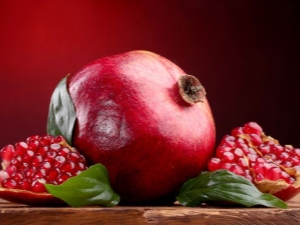
The period of breastfeeding is no less difficult for a woman than the pregnancy itself. On the one hand, many medicines and familiar foods can harm the child, and on the other hand, the mother should receive as many vitamins and other useful substances as possible. Among natural sources of health, pomegranate is the most popular.
Benefit
Ripe pomegranate is easy to find on the counter of any supermarket. Today, this unusual fruit is known in all corners of the world, because its beneficial properties cannot be overestimated. Since ancient times, for example, in ancient Greece, the seeds and peel of these fruits have been used as a food additive and a complete medicine.
Modern medicine has not only not abandoned such methods, but, on the contrary, has studied the biochemical properties of ripe pomegranates in more detail, thanks to which this product has opened up to us from a new side.
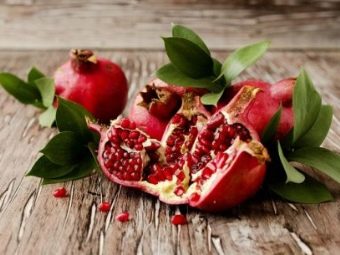

So, to date, it has been proven that ripe pomegranate seeds contain approximately the following combination of bioactive substances useful for our body.
- Carbohydrates in the form of glucose, fructose, sucrose. It is the most valuable and simple source of energy for our body. Carbohydrates are the basis of all nutrients, so they will be useful for both a nursing mother and a baby whose body is just adapting to the consumption of such elements.
- Various trace elements and minerals, including iron, magnesium, zinc, sodium and many others. As part of pomegranate juice or grains, they are in their simplest state, so they are easily absorbed even by a young, fragile organism. Most of these substances are indispensable for a child who is actively growing and developing.
- Huge amount of vitamins. Among them are representatives of groups B, C, E and P. The concentration of these useful components is so high that pomegranate is rightfully considered the most useful among all products.
- A nicotinic acid, which is known in medicine as a stimulant of the central nervous system. It stabilizes neural connections, improves brain function, improves concentration, and reduces fatigue.
- Fatty organic acidsessential for the normal functioning of the immune system. Their consumption is very useful for babies, and due to the presence of a complex of vitamins and a simple structure, these components easily penetrate into breast milk.
- Folic acid. It is necessary for better assimilation of almost all of the above bioactive components of pomegranate seeds. In particular, this substance improves the absorption of iron elements.

The use of pomegranate is most often recommended for people who have suffered a serious illness, blood loss or complex surgery. This is due to the fact that the main value of the fruit lies in the high concentration of vitamins, folic acid and iron. Nevertheless, anyone who cares about their health, proper nutrition and strengthening the immune system can eat pomegranate or drink freshly squeezed juice from it.
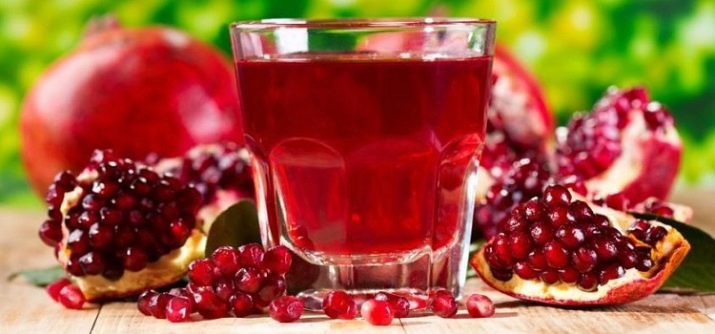
Here are just a few of the healing properties of ripe pomegranate.
- Increases the activity of endocrine organs. This is especially useful for the mother during breastfeeding, since lactation normalizes and improves in the shortest possible time, the risks of blockage of the milk ducts and the development of inflammatory diseases are reduced.
- Normalizes hormonal balance. Most women find it quite difficult to return to normal immediately after childbirth and start regular feeding of the baby. Hormonal imbalances often provoke a decrease or complete cessation of lactation. Regular consumption of pomegranate seeds or juice can solve this problem.
- Stabilizes the motility of the gastrointestinal tract. Pomegranate-based products are often recommended for those suffering from chronic diarrhea as the fruit has mild astringent properties.
- It has a pronounced effect of strengthening immunity. This is due to the large number of vitamins and their accompanying components such as nicotinic, folic and other organic acids. They contribute to the active production of interferons, help the body respond in time and as quickly as possible to pathological changes in it. All these beneficial substances in moderation pass to the child with milk with HB, due to which his immune system quickly adapts to the environment.

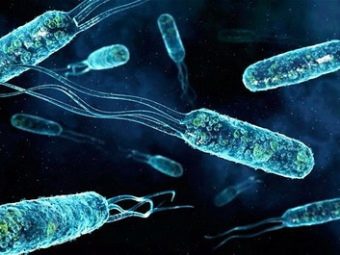
- Has antioxidant properties. With regular use, pomegranate helps to remove all unnecessary substances, improves the filtering function of the liver and kidneys. This product is recommended for all mothers who live with a child in regions with high air pollution and radioactive background.
- General toning effect. The work of the central nervous system, skeletal muscles, and internal organs improves.
- Strengthens metabolic processes. Thanks to this, the quality of mother's milk improves, the child's digestion is normalized, and in the future it is much easier to adapt to complementary foods.
- Has an anti-inflammatory effect, accelerates the processes of natural regeneration and recovery.
Of course, such a product will be useful for both a nursing mother and her baby. In this case, the main thing is to follow all the rules for using pomegranate and eliminate the risk of complications.

Harm and contraindications
It is believed that the most dangerous complication from the use of pomegranate is the development of food allergies. By itself, such a reaction is not fatal and practically does not cause any harm to health, however, it causes serious discomfort. In a mother, an allergy to pomegranate can manifest itself in the form of red spots on the skin, slight swelling of the lips, the appearance of discharge from the nose, tearing. A similar reaction can also occur in a baby during breastfeeding. In infants, as a rule, individual intolerance to such products manifests itself in the form of rashes and intestinal disorders.
Of course, if you or your baby has a similar clinical picture, you should completely abandon the use of pomegranate. You should also avoid pomegranates and products with their addition if the mother or child has:
- acute or chronic diseases of the internal organs, in particular, the liver and kidneys, which reduce the excretory functions of the body, it can be glomerulonephritis, pyelonephritis, hepatitis or hepatosis;
- peptic ulcers of the stomach or duodenum;
- acute gastritis;
- congestion in the intestines;
- the child has prolonged colic.

Nursing mothers should consume only ripe pomegranate seeds and completely abandon tinctures or decoctions based on the peel of the fruit. The fact is that pomegranate peels contain numerous toxic substances that can be used as a medicine, but are extremely dangerous for a small child. These include alkaloids that can produce a pronounced anthelmintic effect, but are also considered poisonous for children under two years of age.
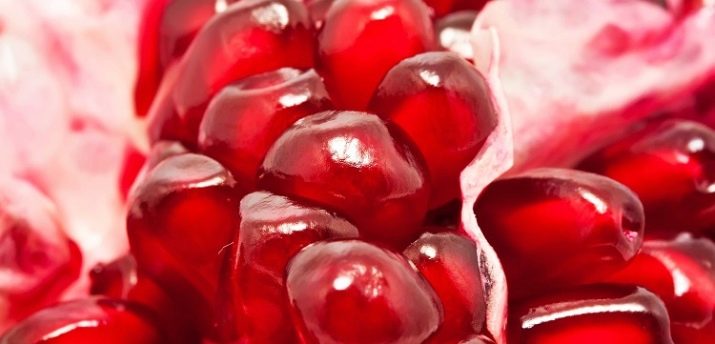
How does it affect breast milk?
You can often find the opinion of experienced pediatricians that it is better for nursing mothers to refrain from eating pomegranates, especially in the first months of a child's life. This warning is due to the fact that pomegranate is a product very rich in bioactive substances. Most of them are in a form that easily passes from the digestive tract into breast milk, due to which it begins to contain an increased concentration of organic acids, minerals, trace elements, vitamins and iron.
Of course, all these components are necessary for the actively growing body of the baby, but he is not ready from the very first days to use them in such quantities. In this regard, mothers are advised to introduce such products into the diet gradually.

How to enter into the diet?
The most optimal time to start eating pomegranate is the age of the child from 6 months. During this period, the mother can eat pomegranate without much fear or drink juice from its seeds, however, in the first days of such a diet, it is necessary to observe the reaction of the child after feeding and increase the dosage gradually.
It is best to start by eating a small amount of grains in the morning. You can also drink in the morning a few tablespoons of juice, slightly diluted with water.
Is it better to eat pomegranate or drink juice from it?
It is believed that whole pomegranate seeds are more useful. However, doctors recommend nursing mothers to abandon them. The fact is that the seeds of the fruit contain a large amount of estrogen, which can harm the baby or even cause a serious hormonal imbalance in the mother.
On the other hand, juice is more concentrated, so it is necessary to strictly adhere to a certain dosage. Pediatricians recommend drinking such a drink only when the child is at least 6 months old. A new product should be introduced gradually, starting with very small dosages and monitoring the reaction of the child. First of all, you should be wary of allergies or chronic constipation, which can develop in a baby due to the high content of tannins in breast milk.
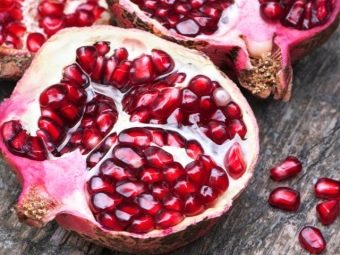

In what form to use?
It is best to immediately refuse to buy a ready-made drink in the store. Despite the active advertising that juices are completely natural, this is not at all the case. A nursing mother needs to drink exclusively freshly squeezed pomegranate juice, prepared at home from ripe fruits. The drink is quite concentrated, so it can be dangerous for the baby. It cannot be used in its pure form and should be diluted with ordinary water at room temperature at a rate of 1: 1.
Also, do not add sugar or honey to pomegranate juice, even if it seems too tart to you. Such sweeteners will only spoil breast milk and neutralize all the beneficial qualities of the pomegranate. If the taste is too unpleasant, you can mix the drink diluted with water with a little apple juice.
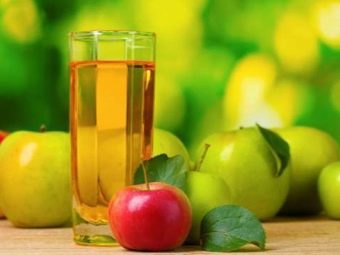
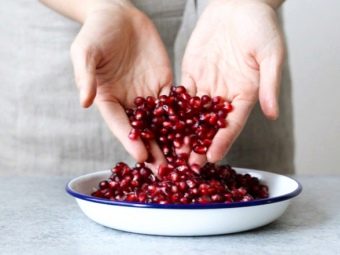
In the next video, Dr. Komarovsky will tell you how a woman who is breastfeeding a baby can make her life as easy as possible without harming the baby.

















